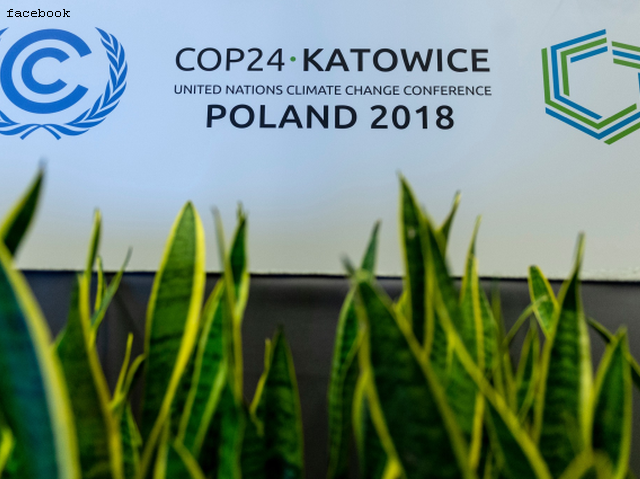Climate change consequences
Only 12 years are left for humankind to reduce by half the effects of the greenhouse gas emissions in order to avoid a possible climate catastrophe.

Corina Cristea, 14.12.2018, 13:12
2019 will be one of the four hottest years on record, Executive Secretary of the United Nations Framework Convention on Climate Change, Patricia Espinosa, has warned at a conference on combating global warming held in Poland’s Katovice. For two weeks, officials from 200 countries got together in an attempt to finalize the implementation guidelines for the Paris Climate Change Agreement, signed in December 2015.
These will provide clarity on how to implement the agreement fairly and transparently. Specifically, they will strengthen international cooperation by ensuring national contributions to the global effort are transparent, responsibility is shared fairly and progress on reducing emissions and building resilience can be accurately measured.
Implementing the provisions of the Paris Agreement is important because the impact of climate change has never been worse. “According to the Paris Agreement, whose provisions will come into force in 2020, 184 countries have consented to implementing measures for the reduction of pollution. The agreement aims to limit warming to “well below” 2°C above pre-industrial levels, and recognizes that avoiding 1.5°C of warming “would significantly reduce the risks and impacts of climate change.” The recent UN climate change conference is the most important meeting targeting climate change after the conclusion of the Paris Agreement. The Summit took place at a time when scientific reports have revealed that only 12 years are left for humankind to reduce by half the effects of the greenhouse gas emissions in order to avoid a possible climate catastrophe.
The European Commission adopted a strategic long-term vision for a prosperous, modern, competitive and climate neutral economy by 2050 — A Clean Planet for all. The strategy shows how Europe can lead the way to climate neutrality by investing into realistic technological solutions, empowering citizens, and aligning action in key areas such as industrial policy, finance, or research — while ensuring social fairness for a just transition.
European Commissioner for Climate Action and Energy, Miguel Arias Cañete: “There are seven common building blocks present in all scenarios. First, the European energy system will need to decarbonise. By 2050, 80% of electricity will come from renewable energy sources. Together with nuclear power, this will be the backbone of carbon-free European power system. We will also see a substantial electrification of European economy, at least doubling of its share in final energy demand by 2050, with electricity spreading to more uses such as heating and transport. Second, energy efficiency plays a key role. This covers industry but maybe even more so the renovation of buildings, both for housing and for services. By 2050, energy consumption is likely to be halved. Third, transport needs to contribute more. Today, it represents a quarter of greenhouse gas emissions. This covers electrification of transport, the switch to alternative fuels — notably synthetic fuels — and better and smarter transport management. “
Fourth, industry has already reduced emissions but some parts, notably process-related emissions, are difficult to address. Here too, we will need to look at a different set of fuels, carbon sequestration and use. Commissioner Cañete explains: “Fifth, sustainable use of land is central if the EU is to reach net-zero emissions. We will need to use more biomass — but we should ensure that the sink that forests and land constitute is maintained and possibly even enhanced. Sixth, infrastructure will be essential to facilitate the integration of European energy systems, digitalisation and the use of low-carbon fuels. And seventh, carbon capture and storage, despite its current problems, will be necessary notably to decarbonise industry. “
We have a strong mandate on the part of the citizens, Brussels has recalled. According to the most recent Eurobarometer, as of November 2018, 93% of the European citizens believe climate change is caused by human activity, while 85% of them agree that the fight against climate change and a more efficient use of energy can generate economic growth and jobs, across Europe.
As of January 1st, 2019, Romania is taking over the rotating presidency of the EU Council. Its mandate will be marked by debates on strategies that will define the community area for the coming decades. From this position, Romania may enhance the role of Eastern Europe in the energy sector, according to Chairman of the Building Performance Institute Europe and member of the European Climate Foundation, Julian Popov: “Apart from the Brexit story which, sad as it may be, is an impact story, notwithstanding, Romania will chair the early stage of the negotiations for the 2050 strategy. It is an important document because the EU finally switches to green economy. Then there will be talks on the EU budget, that should provide for a 25% growth for climate change, and 60% for research. It is a new paradigm, as Europe has realized it has lagged behind in terms of research. It is a time when Europe wakes up.“ As for Romania, it can influence the future community strategies, Julian Popov has also said.





























